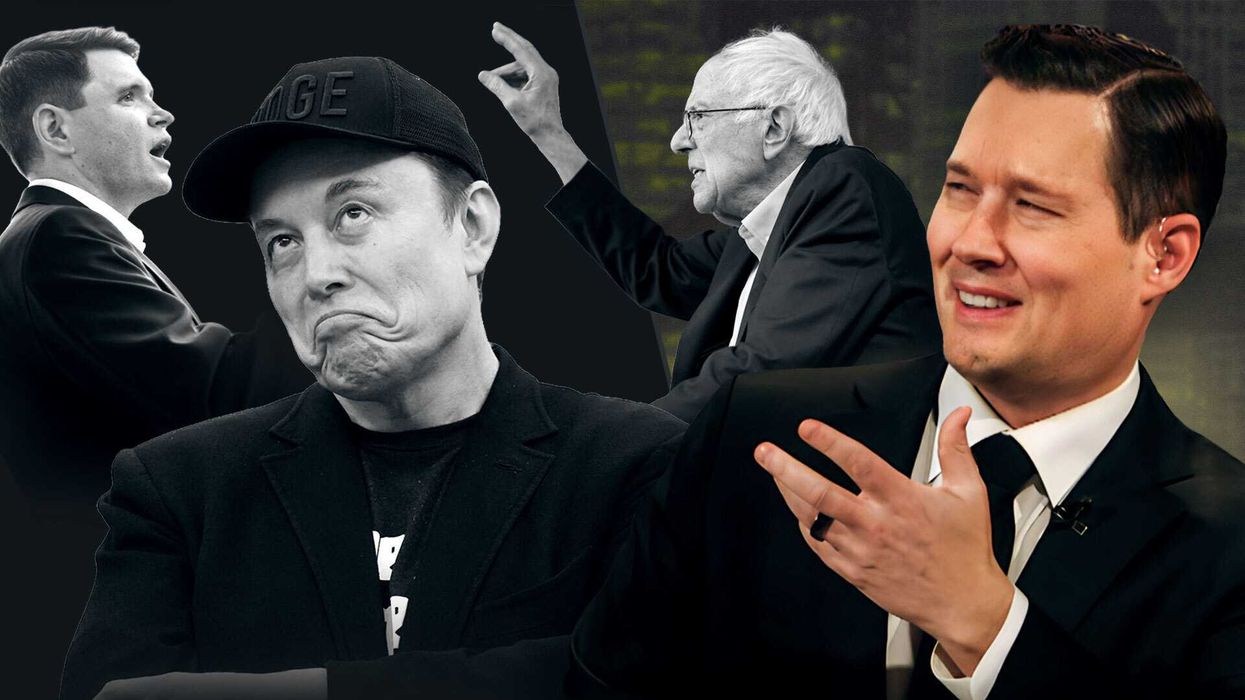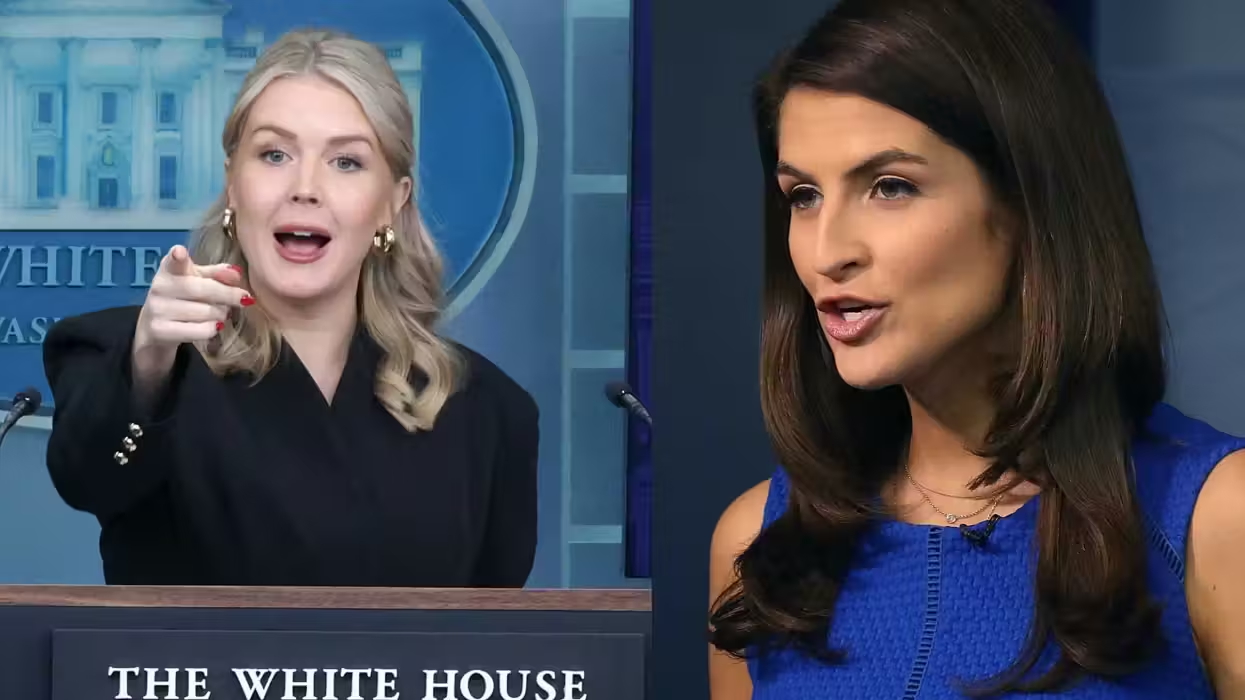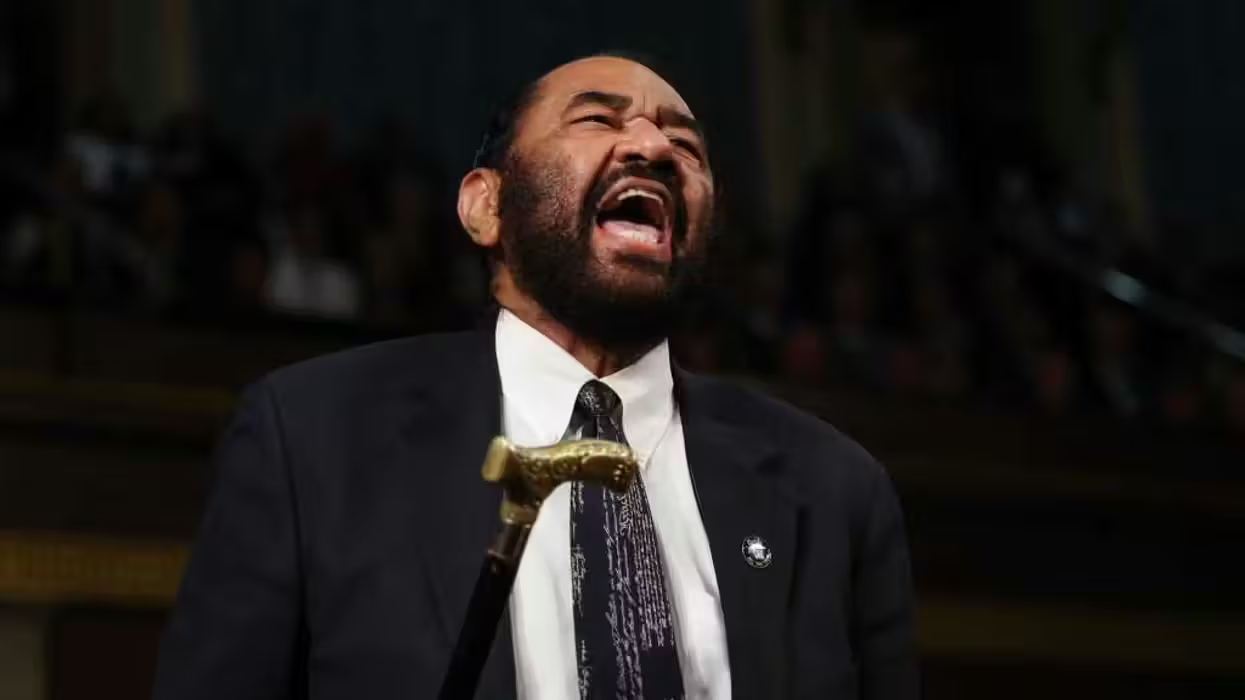
© 2025 Blaze Media LLC. All rights reserved.
Rush: New Net Neutrality Rules Are 'Solution in Search of a Problem
December 21, 2010
After the Federal Communications Commission (FCC) approved new regulations Tuesday which set guidelines for internet providers, conservative radio host Rush Limbaugh attacked the idea, calling a "solution in search of a problem." There is no problem with the internet as it is, Rush notes, but progressive liberals are looking for ways to control the internet as more and more people turn to web surfing every day:
Proponents of the plan claim the new regulations will help small start-ups compete with larger, more established companies -- creating an "even" playing field for all. But opponents, including Henry Blodget of the Business Insider, argue that "not all bits are created equal" and that net neutrality "zealots" are simply looking out for their own selfish interests:
Tech folks are up in arms at the thought that new laws might allow Internet Service Providers to charge more to deliver some bits than others--including offering "premium" tiers in which some folks can pay to have their bits delivered faster than other bits.
Such a practice, tech folks say, will lead to favoritism and will stifle innovation, as the ISPs cut sweetheart deals with rich companies and penalize poor ones. So?
Another way of saying the same thing is that tech folks want ISPs to be forced to continue to give all tech startups a free lunch while subsidizing their innovation.
ISPs spend billions of dollars building fiber networks. Why shouldn't they be able to charge what the market will bear to deliver bits over those networks? If people want their bits delivered quickly and securely, they can pay more. If they don't, they can pay less. It's as simple (and fair) as that.
In addition to a pure business standpoint, Blodget also cites "moral and economic fairness" is their opposition to the so-called net neutrality rules:
To see how self-serving the "net neutrality" concept is, all you have to do is glance at the physical world. Imagine if the Post Office (or FedEx, or UPS, or DHL, or any trucking or transport company) were legally prohibited from charging more for delivering some stuff sooner than other stuff. ...
Ridiculous. Those shipping and transport companies spent billions of dollars building their transportation networks. They have every right to charge whatever the market will bear to deliver stuff via them.
No one has any problem with the concept that the Post Office treats overnight packages differently than slow-boat ones. Importantly, they also charge different rates depending on what is in the package--see "book rate" and all pricing by weight. So why all this hullaballoo about "NET NEUTRALITY"? Self-interest.
But many net neutrality proponents are unhappy with the new regulations, arguing that they don't go far enough. The far-left Daily Kos site claims President Obama has broken yet another campaign promise to his base by failing to deliver more stringent regulations and supporting "fake" net neutrality:
These rules also violate President Obama's campaign promise to protect Net Neutrality and appoint an FCC Commissioner who would do the same, but the White House is trying to convince us this isn't a sellout as well with their wholly supportive statement.This is not a compromise, as Genachowski claims (known in some circles as Judas GenaComcast for his historic sellout and notorious industry-friendly attitude) and it doesn't fulfill Obama's campaign promise -- not even close. There's no such thing as half a First Amendment and no such thing as prohibiting "some" corporate censorship.
George Soros-linked Free Press produced this video, seemingly explaining the difference between "real" and "fake" net neutrality:
Finally, ardent net neutrality supporter Sen. Al Franken, D-Minn., condemned the FCC's final decision Tuesday, complaining that the new regulations were "inadequate":
The FCC’s action today is simply inadequate to protect consumers or preserve the free and open Internet. I am particularly disappointed to learn that the order will not specifically ban paid prioritization, allowing big companies to pay for a fast lane on the Internet and abandoning the foundation of net neutrality. The rule also contains almost no protections for mobile broadband service, remaining silent on the blocking of content, applications, and devices. Wireless technology is the future of the Internet, and for many rural Minnesotans, it’s often the only choice for broadband.
Want to leave a tip?
We answer to you. Help keep our content free of advertisers and big tech censorship by leaving a tip today.
Want to join the conversation?
Already a subscriber?
more stories
Sign up for the Blaze newsletter
By signing up, you agree to our Privacy Policy and Terms of Use, and agree to receive content that may sometimes include advertisements. You may opt out at any time.
Related Content
© 2025 Blaze Media LLC. All rights reserved.
Get the stories that matter most delivered directly to your inbox.
By signing up, you agree to our Privacy Policy and Terms of Use, and agree to receive content that may sometimes include advertisements. You may opt out at any time.






